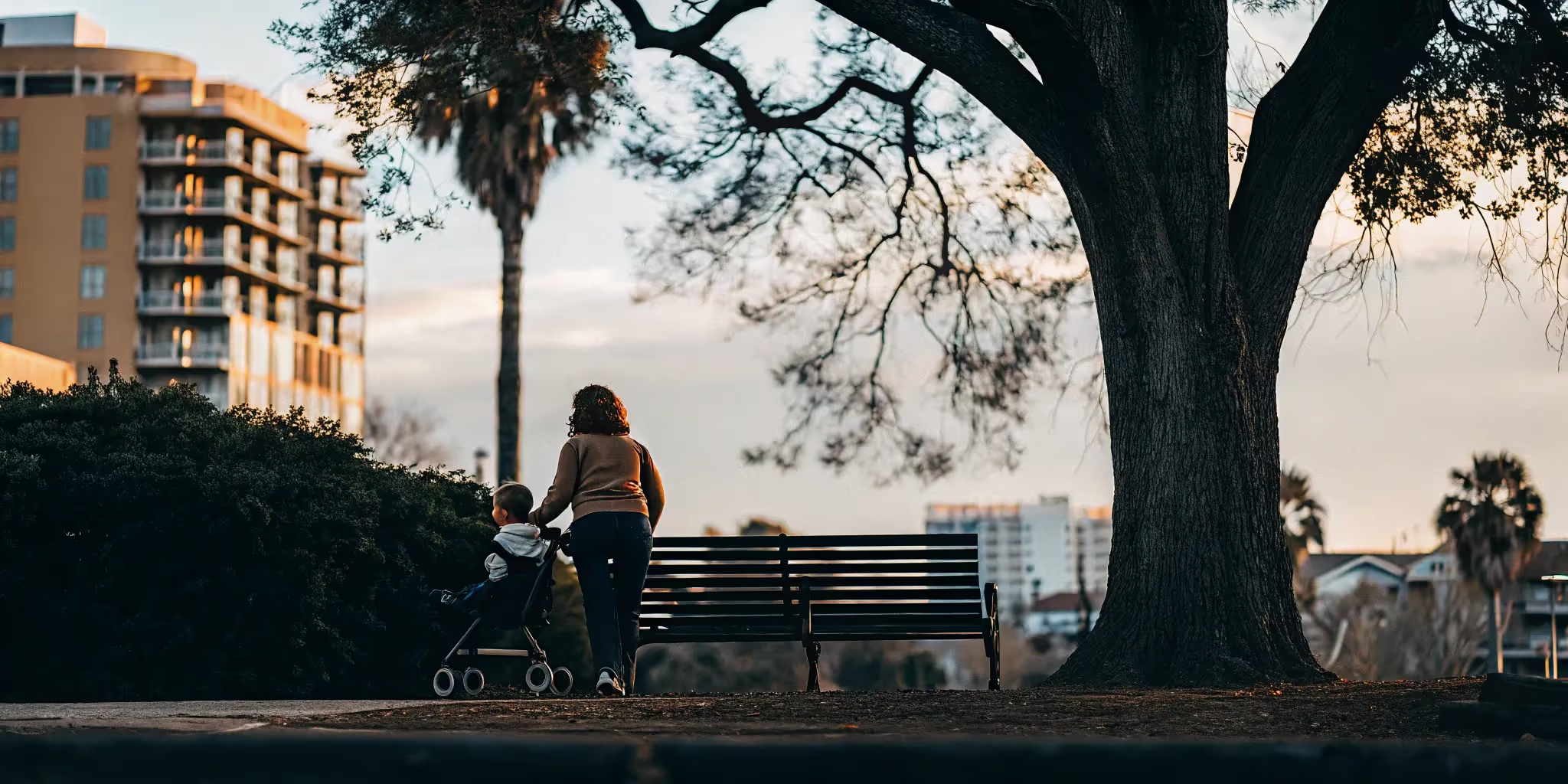Your Guide to Autism Resources in Houston, Texas
Find essential autism resources in Houston, Texas, including therapy, support services, and community programs to help families and individuals thrive.

ABA therapy is a cornerstone of a child's development, but it’s one piece of a larger support system. A truly holistic plan includes educational support, medical care, social opportunities, and community connection. As a BCBA, you are uniquely positioned to help families build this comprehensive network. To do that effectively, you need a solid understanding of the local support system. We’ve created this guide to the best autism resources Houston, Texas, has available to serve as your map. It highlights key organizations that can complement your clinical work, helping you connect families with the wrap-around services needed for their child to thrive.
Key Takeaways
- Build a Holistic Support Network: Houston's resources are designed to work together. You can guide families from an initial diagnosis at Texas Children's Hospital to lifelong support at Avondale House, creating a truly comprehensive care plan.
- Connect Families with Targeted Aid: Directly address a family's most pressing needs by pointing them toward specific solutions. Whether it's financial assistance from Hope For Three or state-funded ABA therapy, you can help make essential care more accessible.
- Champion Support Beyond the Clinic: A child's growth also happens through play and connection. Recommend resources like Easter Seals' sensory-friendly events or local adaptive sports to help families build a supportive community and find joy.
Finding Autism Support in Houston
Finding your way through the support landscape in a city as large as Houston can feel like a full-time job. The good news is that the city is rich with resources for individuals with autism and their families. To help you and your clients get started, here is a list of some of the most impactful organizations in the area that provide everything from direct therapy to community support.
One of the most comprehensive providers is Easter Seals Greater Houston, which offers programs designed to build crucial life skills. They focus on helping individuals improve their social interactions and problem-solving abilities, making them a fantastic resource for families seeking well-rounded support. For clients with moderate to severe autism, Avondale House offers a unique continuum of care. Their services support individuals from early childhood through adulthood, providing education and training that helps them achieve their fullest potential. This long-term approach gives families consistent, specialized support throughout their loved one's life.
If you have clients in Fort Bend County, make sure they know about Hope For Three. This local nonprofit is dedicated to providing families with financial assistance and educational resources. They do incredible work promoting inclusion and building a strong support network within the community. On the state level, the Children’s Autism Program from Texas Health and Human Services provides Applied Behavior Analysis (ABA) therapy, making these evidence-based services more accessible. Finally, the Autism Society of Texas is a vital hub for information and advocacy across the state, connecting families with the resources and support they need.
Houston's Top Autism Organizations
Houston is home to a vibrant and supportive community for individuals with autism, anchored by several outstanding organizations. For families and BCBAs, knowing where to turn for help is the first step toward building a strong support system. These organizations are more than just service providers; they are community pillars that offer everything from initial diagnosis and therapy to family resources and lifelong support. They form the backbone of the autism resource network in the city, providing critical services that complement the work we do as behavior analysts.
Whether you're helping a family navigate a new diagnosis or looking for specialized programs for a client, this list is your starting point for connecting with Houston's best. Each one brings something unique to the table, from hospital-based programs with world-class medical teams to grassroots non-profits offering financial aid and community connection. As a BCBA, familiarizing yourself with these key players will not only expand your referral network but also empower you to provide more holistic guidance to the families you serve. Understanding the landscape of local support allows you to point families toward trusted resources for things like parent training, social skills groups, and advocacy. They are essential partners in our shared mission to help individuals with autism thrive, and connecting your clients with them can make a world of difference in their journey.
Easter Seals Greater Houston
This organization is a fantastic resource, offering a wide array of programs designed to support individuals with autism and their families. Easter Seals Greater Houston focuses on developing crucial life skills in a nurturing environment. Their services are tailored to help participants improve their social interactions, build problem-solving abilities, and foster a greater sense of responsibility and self-esteem. For BCBAs, this is a great place to refer families who are looking for comprehensive support that addresses multiple areas of development. Their commitment to empowering individuals with autism helps create a foundation for them to lead more independent and fulfilling lives, making them a valuable ally in the Houston community.
Avondale House
What makes Avondale House stand out is its dedicated focus on individuals with moderate to severe autism, providing specialized services from early childhood through adulthood. This long-term commitment ensures a continuum of care that is often hard to find. They provide education, training, and resources aimed at helping each person achieve their highest potential. For clients who require more intensive support, Avondale House offers a structured and compassionate environment that fosters growth and development. As a BCBA, having a resource like this in your network is invaluable for families who need specialized, lifelong support for their loved ones.
Texas Children's Hospital Autism Program
When it comes to comprehensive medical care, the Texas Children's Hospital Autism Program is a leading authority in Houston. This program is an essential resource for families seeking diagnosis, treatment, and integrated medical support for their children. Their multidisciplinary team provides a holistic approach, ensuring that every aspect of a child's well-being is addressed. For BCBAs, collaborating with or referring families to a renowned institution like Texas Children's can be crucial, especially for complex cases or when co-occurring medical conditions are present. They offer a seamless experience from initial evaluation to ongoing therapy and family support services, making them a cornerstone of pediatric autism care in the region.
Hope For Three
Based in Fort Bend County, Hope For Three is a beacon of support for families affected by autism. As a nonprofit, their mission is centered on providing direct help where it's needed most. They offer crucial financial assistance to help cover the costs of therapies, treatments, and other essential services, which can be a game-changer for many families. Beyond financial aid, Hope For Three provides valuable educational resources and community programs that promote inclusion and awareness. For BCBAs with clients in the Fort Bend area, this organization is an incredible resource for families who need an extra layer of community and financial support.
The Harris Center for Mental Health and IDD
As the state-designated Local Mental Health and IDD Authority for Harris County, The Harris Center for Mental Health and IDD is a vital public resource. They provide a broad spectrum of services for individuals with autism, including comprehensive evaluations, therapy, and robust family support programs. Their mission is to improve the quality of life for their clients by making essential mental health and developmental services accessible to the community. For BCBAs, The Harris Center is an important partner for referrals, especially for clients who may benefit from integrated mental health care or require access to state-funded programs. They play a critical role in the public health infrastructure of Houston.
Essential Therapy and Support Services
When you’re guiding families, connecting them with the right therapies is a crucial part of building a comprehensive support plan. Houston has a strong network of providers offering essential services that work together to help children with autism build skills and confidence. From foundational behavioral therapy to specialized school programs, these resources are designed to meet a wide range of needs. As a BCBA, having a clear map of these services helps you empower families to find the best path forward for their child.
Applied Behavior Analysis (ABA) Therapy
Applied Behavior Analysis (ABA) is a foundational, evidence-based therapy for many children with autism. As a BCBA, you know it’s all about creating a personalized approach to improve communication, develop social abilities, and address challenging behaviors. For families just starting their journey, understanding the scope of ABA is a critical first step. The state’s Children’s Autism Program offers a great overview of how these services are structured and supported in Texas. This therapy is highly individualized, focusing on the specific needs of each child to help them build meaningful skills and thrive in their daily lives. It’s a collaborative process that empowers both children and their families with effective strategies.
Speech and Occupational Therapy
Beyond ABA, speech and occupational therapies are key to helping children develop vital life skills. These therapies work hand-in-hand to support a child’s overall development. Speech therapy focuses on improving all aspects of communication, while occupational therapy helps with daily living activities, fine motor skills, and sensory processing. Organizations like Easter Seals Greater Houston provide these comprehensive services, aiming to help children gain independence and participate more fully in their family, school, and community. Integrating these therapies can create a well-rounded support system that addresses a child's unique profile of strengths and needs, leading to more confident and capable kids.
Social Skills Training
Navigating social situations can be tricky, and social skills training gives children the tools they need to connect with others. These programs offer a safe, structured environment where kids can practice everything from starting a conversation to understanding nonverbal cues and building friendships. In the Houston area, Hope For Three is a fantastic resource, offering community programs and events that incorporate social skills training. By participating in these groups, children can build their social confidence and competence alongside peers who understand them. It’s a practical way to help kids feel more comfortable and successful in their social worlds, from the playground to the classroom.
School-Based Programs and Support
Finding the right educational environment is a top priority for every family. For some children with autism, a specialized school setting provides the tailored support they need to succeed. These programs offer smaller class sizes, specially trained staff, and a curriculum designed to meet unique learning needs. For instance, Avondale House offers a year-round school specifically for children with autism, creating a consistent and nurturing environment for learning and development. Exploring these school-based programs can help you find an educational path that allows a child to not just learn, but also to feel understood and supported throughout their academic career.
Finding Financial Assistance
Navigating the cost of autism services can feel overwhelming, but Houston families have several avenues for financial support. As a BCBA, you can be an invaluable guide, helping families connect with the resources that make essential therapies and care more accessible. From state programs to local non-profits, here’s a breakdown of the financial assistance options available in the Houston area that you can share with your clients.
Apply for Grants and Scholarships
Grants and scholarships provide direct financial relief for families facing the costs of therapy, equipment, and medical care. Organizations like Hope For Three are dedicated to this cause, offering significant support to the Fort Bend County community. Their Family Assistance program provides up to $5,000 annually for services, while their Quick Assist program offers smaller, one-time grants for more immediate needs. Encourage families to research local and national organizations that offer these types of awards. Many have straightforward application processes and are specifically designed to help children with autism access the care they need to thrive. It’s a practical step that can make a substantial difference in a family's ability to afford consistent care.
Understand Your Insurance Coverage
Before anything else, it’s crucial for families to get a clear picture of what their health insurance covers. Many private insurance plans include benefits for ABA therapy, but understanding the specifics of deductibles, co-pays, and session limits is key. For families who qualify, Texas Medicaid also covers ABA and other autism services, providing a vital safety net. You can empower parents by encouraging them to call their insurance provider directly and ask for a detailed explanation of their benefits for autism-related care. Having this information upfront helps families plan effectively, advocate for their child, and avoid unexpected expenses down the road.
Use State-Funded Programs
Beyond insurance, state-funded initiatives offer another layer of support. The Texas Health and Human Services Commission runs a Children’s Autism Program designed to provide services to children with autism across the state. This program specifically offers Applied Behavior Analysis (ABA) therapy, focusing on targeted interventions to improve critical skills and reduce challenging behaviors. These state-level resources are established to fill gaps in care and ensure that children can access evidence-based treatment regardless of their family's financial situation. Helping families connect with these programs can be one of the most impactful ways to support them on their journey, ensuring their child receives consistent, high-quality therapy.
Get Help from Local Non-Profits
Houston is home to a vibrant community of non-profit organizations dedicated to supporting individuals with autism and their families. These groups often provide services at a reduced cost or free of charge. For example, Easter Seals Greater Houston offers a broad range of support, including case management, therapy, and recreational activities. Another incredible resource, Avondale House, provides comprehensive services including a year-round school and adult day programs. These organizations are deeply embedded in the community and understand the unique challenges families face. Connecting your clients with these local allies can provide not just services, but also a powerful sense of community and belonging.
Educational Support for Children with Autism
Finding the right educational environment is a cornerstone of a child's success. As a BCBA, you know that a supportive school setting can make all the difference in reinforcing therapy goals and fostering new skills. Houston offers a variety of educational pathways, from schools designed specifically for children with autism to programs that champion inclusion in mainstream classrooms. The key is matching the child’s unique needs with the school’s philosophy and resources. Guiding families through these options can help them find a place where their child will not just learn, but truly thrive.
Specialized Schools in the Houston Area
For some children, a specialized school provides the focused, tailored environment they need to flourish. These schools often feature smaller class sizes, staff trained in evidence-based practices, and integrated therapy services. One of Houston’s most comprehensive options is Avondale House, which serves individuals with moderate to severe autism from early childhood through adulthood. It’s the only agency in the greater Houston area offering this lifelong continuum of care, which includes a year-round school program. This type of dedicated setting ensures that every aspect of the school day is designed to support the student's developmental and behavioral goals, creating a consistent and nurturing learning experience.
Inclusive Classroom Options
Inclusive classrooms offer a fantastic opportunity for children with autism to learn alongside their neurotypical peers, building crucial social and communication skills in a real-world setting. These programs often provide additional support, like aides or resource teachers, to ensure every child can participate fully. A great local resource is Easter Seals Greater Houston, which provides a wide range of services for families. Their program, The Caroline School, delivers specialized education for children with multiple disabilities and complex medical needs, creating a bridge to inclusive environments. This approach helps children gain academic knowledge while also practicing social navigation and forming friendships, which are invaluable for their overall development.
After-School and Summer Learning
Learning doesn't stop when the school bell rings. After-school and summer programs are vital for maintaining progress, exploring new interests, and preventing skill regression, especially during long breaks. These programs offer structured, fun activities that continue to build on social, communicative, and behavioral goals in a more relaxed setting. In Fort Bend County, Hope For Three is an incredible advocacy group that connects families with these types of resources. They provide information on various programs, including summer camps and social clubs, that give children a safe and supportive space to practice their skills and simply be kids.
Connect with Your Community
As a BCBA, you know that strong support systems are a cornerstone of success for your clients and their families. Connecting with others who understand the journey can be a game-changer, providing emotional support, practical advice, and a much-needed sense of belonging. When families feel supported, they are better equipped to partner with you in implementing effective strategies. Encouraging the families you work with to find their tribe can profoundly impact their well-being and resilience. Houston has a vibrant network of organizations and groups dedicated to building these connections. Here are a few excellent local resources you can share with your clients to help them find the community and support they deserve.
Local Meetups and Workshops
Finding a group of people who just get it can make all the difference. For parents and caregivers, sharing experiences in a safe space is incredibly validating. In Houston, you can point families toward Autism Moms of Houston, a wonderful organization dedicated to creating a supportive community. They host a variety of meetups and workshops where parents can connect, share resources, and build lasting friendships. It’s a fantastic local resource for families looking to build a personal support network with others who are on a similar path. This kind of peer support can be a powerful supplement to the clinical services you provide.
Annual Autism Awareness Events
Participating in larger community events is a great way for families to feel connected to a broader movement while raising awareness. These events often have a celebratory and empowering atmosphere that can be incredibly uplifting. A great organization to follow is Hope For Three, which serves the Fort Bend County area and hosts regular events for families. They organize social gatherings and parent-specific clubs that create a strong network of support. By attending, families not only find camaraderie but also contribute to a more inclusive and understanding community for individuals with autism. These events are perfect for fostering a sense of unity and shared purpose.
Houston-Based Online Forums
For families with demanding schedules, online forums offer a flexible and accessible way to connect. Sometimes, the best time to ask a question or seek advice is late at night, and digital communities are there 24/7. The Autism Society of Texas is an invaluable resource, providing extensive information, advocacy, and support for families across the state. Their online platforms allow parents and caregivers to engage in discussions, share personal stories, and access a wealth of resources from home. This is an excellent option for families who may find it difficult to attend in-person meetings but still want to build connections and stay informed.
Find Medical and Diagnostic Services
Connecting families with the right medical and diagnostic services is a critical step in their journey. As a BCBA, having a list of trusted, comprehensive care centers on hand can make a world of difference for your clients. Houston is home to several outstanding facilities that specialize in autism, offering everything from initial diagnosis to ongoing, specialized medical care. Guiding a family to a center that provides a multidisciplinary approach ensures they receive well-rounded support that addresses their child's specific needs from multiple professional angles.
Autism-Focused Medical Centers
For families looking for comprehensive care, the Texas Children's Hospital Autism Program is a leading resource in the Houston area. Their team uses a multidisciplinary approach for both diagnosis and treatment, creating tailored support plans that address each child’s unique profile. This program is known for not only its excellent medical care but also for providing families with the essential resources they need to understand and manage their child's diagnosis. It’s a place where families can feel confident they are receiving thorough, thoughtful, and integrated care from a team of specialists all working together for their child.
Specialized Healthcare Providers
Easter Seals Greater Houston is another vital hub for families, offering a broad spectrum of services for individuals on the autism spectrum. Their programs are designed to build independence and help children thrive in their daily lives. This includes a wide range of children's therapy services, such as speech, occupational, and physical therapy, all aimed at helping kids participate more fully in family, school, and community activities. This holistic approach means that both the child and their family get the wrap-around support they need to build skills and confidence for the future.
Early Intervention Programs
We all know how crucial early support is for young children with developmental delays. In Texas, Early Childhood Intervention (ECI) services are available for children from birth to 36 months, and they can be a game-changer for families. Organizations like Easter Seals Greater Houston are key providers of these services. ECI programs focus on helping children reach developmental milestones through personalized therapies and activities. More importantly, they equip parents and caregivers with the strategies and tools they need to foster their child's growth and development right from the start, setting a strong foundation for years to come.
Transitional Support for Adults with Autism
The transition from adolescence to adulthood is a major milestone for anyone, and for individuals with autism, it comes with a unique set of opportunities and challenges. Building a fulfilling adult life often involves finding meaningful work, establishing independence, and sometimes, pursuing higher education. It can feel like a lot to figure out, but the good news is you don't have to do it alone. Houston has a strong network of organizations dedicated to providing transitional support, helping adults with autism develop the skills and confidence they need to thrive. Below are some key areas where you can find specialized assistance for your clients or loved ones as they take these important next steps.
Find Employment Support Programs
Securing and maintaining a job is a key part of adult independence. For individuals with autism, finding a workplace that fits their skills and provides the right level of support is essential. Houston has several fantastic programs that specialize in this area. They go beyond simple job placement and offer comprehensive services like vocational assessments, resume help, interview coaching, and on-the-job support to ensure long-term success. Organizations like Avondale House provide tailored employment services that empower adults with autism to find meaningful careers. These programs work directly with individuals to identify their strengths and connect them with employers who value their unique talents, creating a path toward financial independence and personal satisfaction.
Get Independent Living Resources
Developing independent living skills is another critical piece of the puzzle for adults with autism. This can include everything from managing a budget and cooking meals to using public transportation and maintaining a home. It’s all about building the confidence to handle daily responsibilities. In Houston, you can find comprehensive case management services that connect individuals and their families to the right resources. For example, Easter Seals Greater Houston offers guidance, referrals, and family support to help with these challenges. Their team can help you create a personalized plan, ensuring adults with autism can access the specific services they need to live as independently as possible and build a life on their own terms.
Explore Continuing Education
For many, the journey of learning doesn't stop after high school. Pursuing higher education or vocational training can open up incredible new career paths and opportunities for personal growth. If your client is interested in continuing their education, look for programs designed to support students with disabilities. Houston offers resources like the High School/High Tech program, which helps students transition into demanding fields like science and technology. This program, accessible through organizations like Easter Seals Greater Houston, provides the tools and mentorship needed for academic success. Local colleges also have dedicated disability resource centers that offer accommodations and support, making higher education a more accessible and achievable goal for students with autism.
Find Recreational and Therapeutic Activities
Therapy and skill-building don't have to be confined to a clinical setting. Houston offers a wealth of recreational activities that are both fun and therapeutic, giving children a chance to grow and connect with others in a supportive environment. As a BCBA, you can share these resources with families looking for ways to enrich their child’s life outside of formal therapy sessions. These programs provide valuable opportunities for social interaction, physical activity, and creative expression, contributing to a well-rounded and joyful life.
Sensory-Friendly Events in Houston
Finding community events that everyone can enjoy can be a challenge, but many Houston organizations are dedicated to creating inclusive spaces. Easter Seals Greater Houston is a fantastic resource, offering a variety of activities specifically designed to be sensory-friendly. These events lower the intensity of sensory stimuli—like bright lights or loud noises—to create a welcoming environment where children with autism can participate comfortably and without feeling overwhelmed. This thoughtful approach not only provides a fun outing for the child but also offers families a much-needed chance to relax and connect with others in a judgment-free setting.
Adaptive Sports and Fitness
Physical activity is essential for development, and adaptive sports programs make it accessible for everyone. In the Houston area, Hope For Three is a key organization that hosts regular events centered on adaptive sports and fitness. These programs give children with autism a chance to engage in physical activities tailored to their needs, helping them build strength, coordination, and confidence. Beyond the benefits for the kids, Hope For Three also recognizes the importance of supporting the entire family. They organize social clubs for parents and caregivers, fostering a strong sense of community and creating a network of mutual support and understanding.
Art, Music, and Animal-Assisted Therapy
Sometimes, the most profound communication happens without words. Creative and play-based therapies offer incredible avenues for children to express themselves and develop new skills. Easter Seals Greater Houston excels in this area, providing therapies that include art, music, and even animal-assisted therapy. These engaging, play-based approaches help children with disabilities explore their feelings, improve fine motor skills, and build connections in a fun, low-pressure environment. Whether it’s through painting, playing an instrument, or interacting with a therapy animal, these activities can open up new worlds of expression and growth.
Putting These Resources to Work
Knowing where to find support is the first step, but connecting families with the right services is where the real work begins. Houston has a strong network of organizations ready to help, and you can guide your clients to the resources that best fit their unique situations.
For families looking for comprehensive programs, Easter Seals Greater Houston is a fantastic starting point. They focus on developing crucial life skills, from social interaction to problem-solving, helping individuals build confidence and independence. If you’re working with clients who need lifelong support, especially those with moderate to severe autism, you can point them toward Avondale House. As the only agency in the area serving this specific population from childhood through adulthood, their tailored resources are invaluable.
Many families also need financial and community-based support. For those in Fort Bend County, Hope For Three offers financial assistance and programs that foster a sense of inclusion and empowerment. On a broader scale, the state’s Children’s Autism Program provides access to Applied Behavior Analysis (ABA) therapy, a critical service for many children. For general information, referrals, and advocacy, the Autism Society of Texas is an essential contact, working to support families at both the state and local levels. By leveraging these organizations, you can help families build a robust support system tailored to their needs.
Related Articles
- Guide to Autism Resources & Support in Texas
- Top ABA Therapy Centers in Houston: A Parent’s Guide
- Learn About One for Autism and How It Supports Families
- Texas Autism Grants: Your Complete Guide
- Choosing the Right Therapist for Autism Spectrum Disorder
Frequently Asked Questions
My client's family just received a diagnosis and feels overwhelmed. What's the best first step I can suggest? When a family is new to this, a great first step is to connect them with a comprehensive center that can provide clear guidance. For medical questions and a thorough diagnostic overview, the Texas Children's Hospital Autism Program is an excellent resource. If they need to connect with public services and support, The Harris Center for Mental Health and IDD is the designated authority for the county and can help them understand the local system of care. Starting with one of these established institutions can give families a solid foundation and a clear path forward.
How can I help a family figure out which organization is the right fit for their specific needs? The best way to guide them is to match their primary need with an organization's specialty. If their child has moderate to severe autism and may need lifelong support, Avondale House is uniquely equipped for that. For families in Fort Bend County who are looking for financial aid and a strong local community, Hope For Three is the perfect resource. For a wide range of therapies and life skills programs all under one roof, Easter Seals Greater Houston is a fantastic and versatile option. Helping them pinpoint their most immediate challenge will make the choice much clearer.
What are the most direct ways for families to get help with the cost of care? Financial concerns are very real, and there are a few practical steps you can suggest. First, encourage them to thoroughly review their insurance plan and contact their provider to understand their exact benefits for ABA and other therapies. Next, they should look into grants from local non-profits like Hope For Three, which provides direct financial assistance. Finally, make sure they are aware of state-funded options like the Texas Children’s Autism Program, which makes ABA therapy accessible to many families.
The post mentions support for adults. Where should I point a client who is transitioning out of school? This is such a critical time, and thankfully, there are dedicated resources. For adults seeking employment support or help with independent living skills, both Avondale House and Easter Seals Greater Houston offer excellent programs. They provide everything from vocational training and job coaching to case management that helps with daily life challenges. These organizations focus on empowering adults to build fulfilling, independent lives, making them a great starting point for any young adult client.
Beyond formal therapy, what are some good resources for helping kids build social skills in a more natural, fun setting? Helping kids practice skills in a relaxed environment is key to their growth. You can suggest families look into the recreational activities offered by local organizations. Easter Seals Greater Houston hosts sensory-friendly events and creative therapies like art and music, which allow for expression in a low-pressure setting. For adaptive sports and community meetups, Hope For Three is a wonderful resource that helps kids connect with peers while staying active and having fun. These activities support therapeutic goals while letting kids just be kids.
Looking for a change?
Start an ABA practice today — with none of the admin burden.













